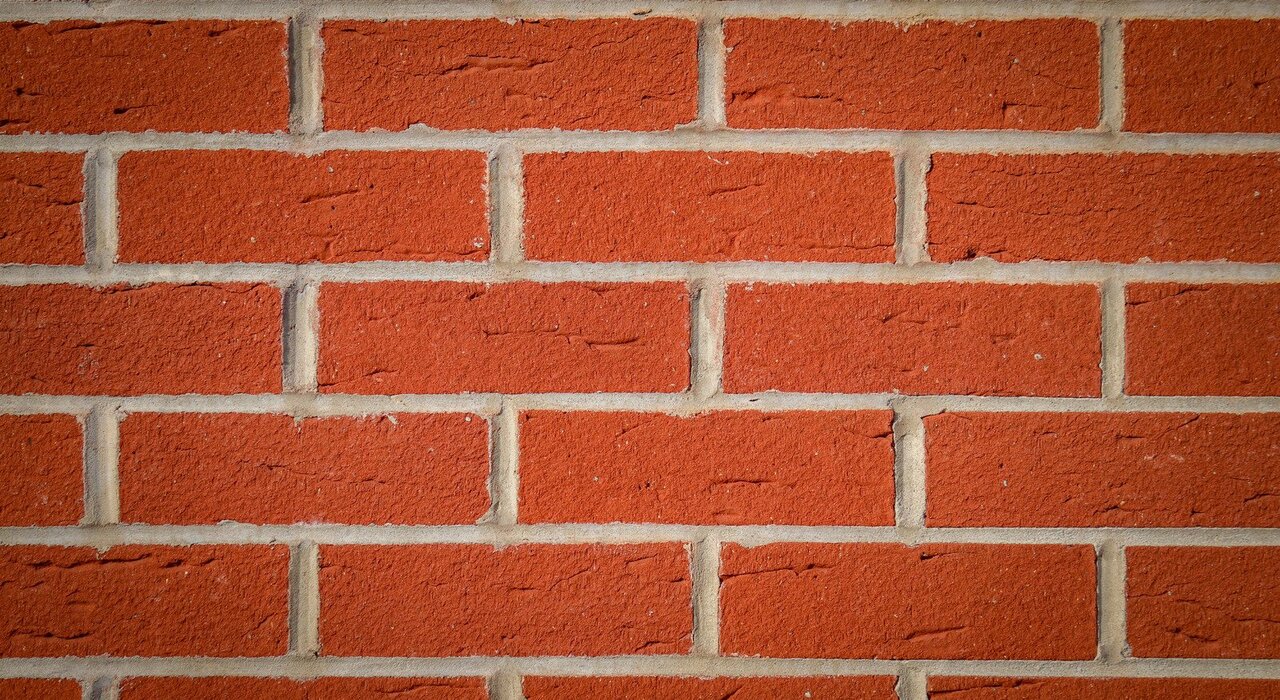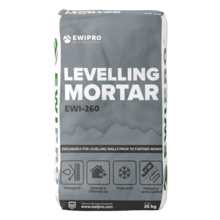
- What is mortar made of?
- What’s the difference between lime mortar and Portland cement?
- Is mortar the same as cement?
- Cement:
- Concrete:
- Mortar:
- Is Mortar waterproof?
- How much does repointing mortar cost?
- The alternative to repointing mortar: External wall insulation
- Is mortar needed in External Wall Insulation?
- Installing External Wall Insulation
Mortar refers to the substance that ‘glues’ bricks together and helps to protect walls from water ingress and heat loss. It has a long and successful history, with the earliest record from Israel which is thought to date back as far as 10,000 years, and many other examples of age-old mortar still exist today. For instance, if your house was built pre-1930, it’s likely that it was built with lime mortar; alternatively, if your house is a new build, it was probably built with Portland cement. Needless to say, mortar can eventually begin to crack, meaning it needs to be either ‘repointed’ – that is, filled in or repaired – or you should have external wall insulation installed on your home. Here at EWI Store, we’re often asked lots of questions about mortar, with the most common being “what is mortar made of?”, “is mortar the same as cement?” and “is mortar waterproof?”. In today’s blog, we’re going to answer all these questions by explaining how mortar is made, the main types of mortar and how to tell whether it’s time to repoint your property or have external wall insulation installed.
What is mortar made of?
Mortaris comprised of materials such as cement, sand and water, and sometimes lime, to create a high-quality substance to seal bricks together. It is either mixed on-site using a concrete mixer or manufactured in a factory off-site by expert suppliers.
What’s the difference between lime mortar and Portland cement?
Lime mortar is generally produced by burning calcium-based raw materials; in the UK and Ireland, chalk and limestone are most commonly used. When these materials are heated to about 850oC, the heat removes the carbon dioxide, leaving calcium oxide or ‘quicklime’. The quicklime is then submerged into the water for weeks or months to create a lime putty, or ‘slaked lime’, which is then mixed with sand and water to create the lime mortar. Portland cement was invented around the 1820s by heating limestone with clay, mixing it to create a slurry, then heating it again. This formula achieved quick drying times, which helped it gain its commercial recognition and become the favoured additive to residential and commercial lime mortars.
Is mortar the same as cement?
Understandably, the name “Portland cement” can cause confusion in that it sounds like… well, cement. However, cement is a binding powder that is never used alone; it is a component of both concrete and mortar, as well as tile grout and thin-set adhesive. Therefore, cement is an element of mortar, so mortar and cement are not synonymous with one another. To break it down even further, here are the differences between cement, concrete and mortar:
Cement:
- Binding component of both concrete and mortar
- Comprises limestone, clay, shells and silica sand
- Hardens and gains strength when mixed with water
Concrete:
- Used for building foundations, slabs and masonry
- Comprises cement, sand and gravel
- Forms into a flexible mould
Mortar:
- Substance that ‘glues’ bricks and blocks together
- Comprises sand, cement, water and sometimes limestone
- Not used as a sole building material
Is Mortar waterproof?
When rain comes into contact with exposed walls, the water can freeze in the bricks and the surrounding mortar which expands the mortar, thereby causing damage. Not only does this freeze-thaw weathering look unappealing but, the longer it’s ignored, the more likely it’ll lead to a cold and damp house. Therefore, if you can see cracks in your mortar, you might want to consider repointing your property.
How much does repointing mortar cost?
Repointing generally costs between £20-£40 per metre squared depending on the condition of the brickwork. In addition, scaffolding may add to the cost. Working out the square meterage of your external walls is easy: you just need to go outside and measure the length and height of the wall, then multiply the two numbers together.
The alternative to repointing mortar: External wall insulation
If you’re considering investing in repointing, it would be extremely worthwhile to go that bit further and consider having external wall insulation installed onto your home. Both external wall insulation and thin-coat renders will provide a weather-tight seal on your external walls, as well as enhance their appearance, increase thermal qualities and reduce energy costs. It might be more expensive but think of all the long-term benefits! If your property is a cavity wall property, learn more about why you should have external wall insulation installed on your cavity walls here.
Is mortar needed in External Wall Insulation?
If your property has uneven substrates and you’re considering having external wall insulation installed, Levelling Mortar is the perfect product for preparing an even substrate before applying an external wall insulation system. Levelling Mortar is a polymer-modified sand and cement mixture which can be used for repairing and filling cavities and walls, making for an easy installation and application of external wall insulation and render.
We hope this blog was useful in clarifying the purpose of mortar, the difference between lime mortar and Portland cement, the permeability of mortar and whether you need to repoint your mortar or go for external wall insulation. If you have any questions, do not hesitate to comment below or ask our lovely Sales Associates!
 [contact-form-7 id="10930" title="Installer Request Form Blog"]
[contact-form-7 id="10930" title="Installer Request Form Blog"]
Installing External Wall Insulation
Want to spruce up the look of your property? Fed up with the temperature fluctuating in your home? Looking for a way to cut those energy bills? Then, look no further than external wall insulation. The EWI Store team are here to answer all your unanswered questions about external wall insulation and render solutions; find our contact details here to get in touch.

